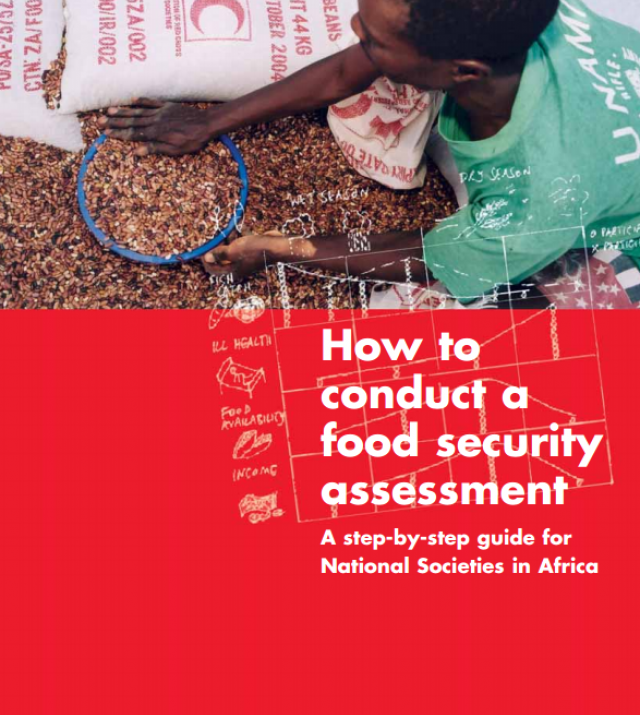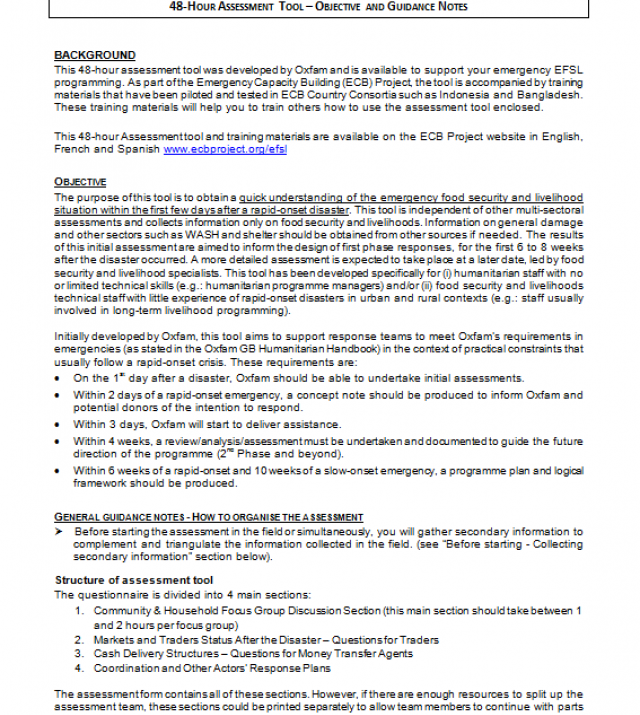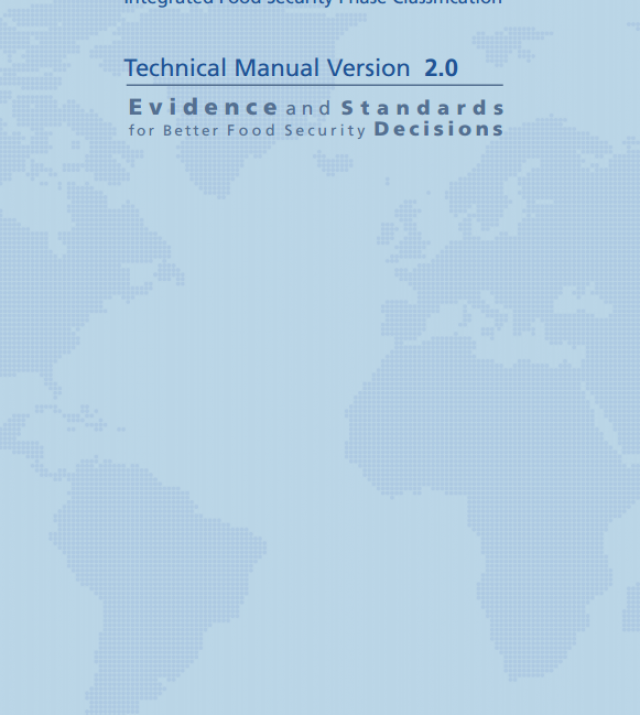
Global Food Security Assessment Guidelines

A food security assessment may become necessary when conditions in a country, region, or local area change, leading to increased vulnerability within communities. As a result, people may no longer be able to meet their nutritional needs. This can be due to either a sudden onset hazard, or a slow but consistent deterioration in the local situation. A number of factors may trigger food insecurity, such as drought, floods, landslides, locust infestations, outbreaks of conflict, influx of refugees or internally displaced people (IDPs), and the HIV/AIDS pandemic.
This guide aims to assist National Society staff and volunteers throughout the world in undertaking food security assessments. It does not require prior knowledge or experience of food security. The guide is a practical tool related to the Food security and nutrition policy, adopted by the International Federation of Red Cross and Red Crescent Societies (International Federation) in 2003, which encourages National Societies to conduct food security assessments.
This guide provides National Societies with a practical tool for undertaking initial food security assessments. It covers the different stages of a food security assessment, and offers techniques and examples for carrying out such an assessment. The guide is valid for both rural and urban settings.

